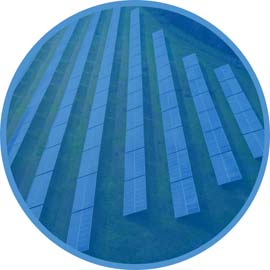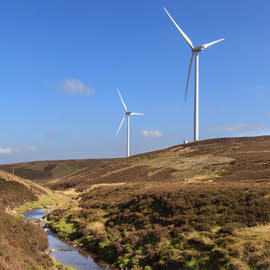Why assess aviation lighting?
Wind farms and single wind turbines can present a collision risk for aviation activity in their vicinity. It is therefore common for such developments to be fitted with aviation lighting.
Aviation lighting can be unpopular with residents in the area of a development due to its visual impact. In rarer cases, concerns can be raised for other reasons, such as nearby dark-sky parks or sensitive telescopes.
The mandatory requirements for aviation lighting can be complex. Guidance has been produced by the International Civil Aviation Organisation as well as civil aviation authorities in numerous countries. Military stakeholders have also been known to specify their own requirements in many countries, including the UK.
What are the benefits of a Pager Power Aviation Lighting Assessment?
Pager Power’s aviation lighting assessment will determine, and summarise, the applicable guidance for the individual development. Subsequently, a recommended lighting scheme will be designed.
All Pager Power reports are designed to be:
- Comprehensive – covering all the relevant aspects for each individual proposed development.
- Up-to-date with reference to current guidelines from the relevant bodies and recent industry developments.
- Understandable to non-experts and experts alike.
Pager Power has been conducting aviation lighting assessments for more than fifteen years. The company is well-placed to conduct an aviation lighting assessment due to its longstanding track record of balancing developer requirements with aviation safety considerations.
What does a Pager Power Aviation Lighting Assessment Cover?
Guidance
Guidance pertaining to lighting requirements can be complex, because it is produced by numerous bodies and can incorporate mandatory rules, best practice and stakeholder consultation requirements. A comprehensive assessment clarifies what is applicable to the development in question.
Recommended Scheme
A recommended lighting scheme designed to incorporate mandatory rules, best practice and developer requirements is produced.
Recommended Next Steps
Where appropriate, recommended next steps to ensure the lighting scheme can be progressed is set out.
If you’d like to discuss this service with a member of our team, please get in touch.

“We first appointed Pager Power in 2004 to assess a number of wind farms in North East England resulting in objections being withdrawn by Newcastle Airport. The company has successfully helped us resolve NATS, Royal Airforce, telecommunications and minor airfield issues.
Pager Power provides advice and technical analysis, are easy to talk to and deliver reports on time. Pager Power has helped us obtain planning permission across the UK including a range of onshore wind farms in North East England and Central Scotland..”
Tony Scorer
Head of Onshore Wind Development, EDF Energy

How can we help you today?



THE SECTORS WE SERVE










